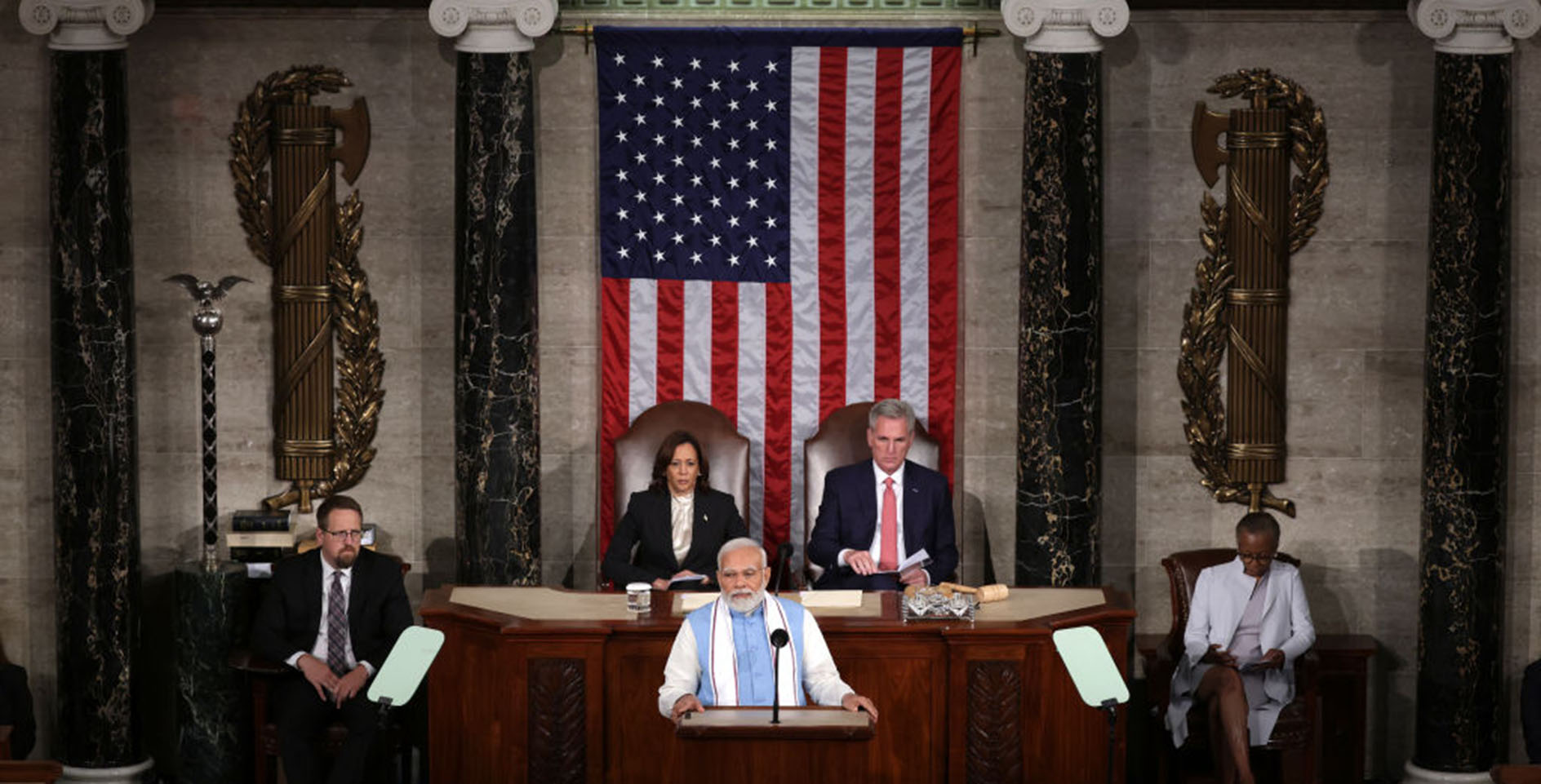What does the future of Christianity in America look like? Better yet, what will the global religious landscape be like in a couple of decades? As secularism broadens its appeal and more and more people are religiously unaffiliated, we may find ourselves struggling to answer these questions. Or, we may simply be fearful of the answers.
A recent report titled “The Future of World Religions: Population Growth Projections, 2010-2050,” published by the Pew Research Center, outlines more than six years’ worth of data collection, coalescing their research into a document projecting the world’s religious makeup in 2050 and the trends that lead there. While the authors of this report are quick to admit how fickle some of these projections may be (due to potential factors like war, famine, disease, and others that cannot be accounted for), nevertheless, there is much in “The Future of World Religions” that should grab our attention.
Here are three takeaways from the Pew Research Center’s report.
1. More religious, not less
If you are paying attention to Western religious trends, you may assume that the global religious trajectory is consistent with what we seem to be experiencing in the U.S., a wayward procession toward secularism. But you would be wrong. Even now, if we were to peer out beyond our own geographic context (and some would argue, even within our own), we would find that the world is not becoming irreligious but more religious. Pew researchers project that this will not only continue, but will surge in the coming decades.
“Atheists, agnostics and other people who do not affiliate with any religion (the report refers to this group as ‘the unaffiliated’) – though increasing in countries such as the United States and France,” the report states, “will make up a declining share of the world’s population.” Of course, because the global population is forecast to increase by 35% from 2010 to 2050, the raw number of religiously unaffiliated people is projected to increase, as we would expect among virtually every religious group. However, “their share of the global population is projected to decrease” from 16% in 2010 to 13% in 2050.
What this means, fundamentally, is that people, despite our technological advancements and “progress,” still possess a deep-level “ache” that goes unrelieved without some sort of transcendent remedy. There are questions that atheism and/or secularism (or any other false worldview, for that matter) simply cannot answer. Religion is not losing global influence. On the contrary, it is growing, and picking up steam. And while religious adherence grows among many faith traditions, Islam is projected to grow most rapidly.
2. The continued growth of Islam
“By 2050, the number of Muslims will nearly equal the number of Christians around the world.”
There is not a religious group that is projected to experience more rapid growth in the next several decades than the Muslim population, both worldwide and here within the United States. From Middle East-North Africa to the Asia-Pacific to Europe and North America, Islam is forecast to grow both numerically and in its share of each region’s total population. If Pew’s projections hold, Christians (31.4%) and Muslims (29.7%) will make up a nearly identical percentage of the world population, totaling an estimated 60% of all people on earth.
While Christians will undoubtedly find this news distressing, we should view these predictions not as something to fear but as an opportunity. After all, these are projections, not certainties. Who’s to say that Christians can’t win to Christ those who are searching, those who are spiritually hungry, and those who are seeking a remedy for their “aches” rather than losing them to another religion like Islam or to the hopelessness of atheism? Despite all the evidence to the contrary, what if the church set out to upend these projections?
What would this take? Well, for one, we’d have to stop all the in-fighting and get serious about the Great Commission. And, certainly, we’d have to take the Great Commandments, the very words of Jesus, seriously — to love God with all that we have and love our neighbor as ourselves. And if we can do that, Lord willing, the Pew Research Center might just have to make significant amendments to their report.
3. Christianity’s net losses
By far, the most distressing projection included in Pew’s report as it relates to Christianity is what they call the “Projected Cumulative Change Due to Religious Switching, 2010-2050.” According to their projections, no religious group will lose more adherents to “switching,” or leaving one’s faith tradition for another belief system, than Christianity.
“Over the coming decades, Christians are expected to experience the largest net losses from switching. Globally, about 40 million people are projected to switch into Christianity, while 106 million are projected to leave, with most joining the ranks of the religiously unaffiliated” (emphasis added). If you do the math, that is a projected net loss of more than 66 million people, exponentially more than any other group represented in the report.
While the report isn’t concerned with answering this question, it would be negligent of us not to ask “why?” Is it because those leaving will have found Jesus’ teaching “hard” (John 6:60) like we read in John’s account of the gospel? Is it because we will have practiced some sort of Pharisaical hypocrisy, driving them away from the kingdom of heaven (Matt. 23:13-15)? Or, will they have “gone out from us” because “they were not of us” (1 John 2:19)? Regardless, this projected seismic “switch” will be a tragedy if we do not resolve to prevent it.
The thing about projections is that they don’t come true until they come true. May we work with all the strength God gives us to see to it that these 66 million who are expected to desert Jesus never actually do.
Perseverance in the face of projections
Regardless of what any report might project, the church of Jesus Christ is assured of its perseverance.
Will Christianity always maintain its majority in global population numbers? I don’t know, maybe not. Will American culture continue to secularize? According to this report, it looks that way for the next 30 years or more. Does this put Christianity and Christ’s church in jeopardy of ceasing to exist? By no means!
The first-century church, under the threat of its Roman overlords, would not have been on the favorable end of any projections. I am certain that Christianity’s eventual extinction would have been the recurrent prediction in that day. But here we are, continuing to persevere, because we do not live by the words and projections of man, “but by every word that comes from the mouth of God” (Matt. 4:4). And the Word that has proceeded from the mouth of God has clearly stated that not even “the gates of hell will prevail” against his church (Matt. 16:18).
We should take Pew’s projections seriously, but let’s not allow them to drive us to despair. Instead, let’s be driven to carry out our mission. Those hungering for some sort of transcendent answer to their aches, those flocking to Islam, and even those disillusioned by their experience of Christianity — whatever the source of that disillusionment —let’s echo the words of Philip in the gospel of John when he said to Nathaniel, “Come and see” (John 1:46). And let’s bring them to Jesus.










